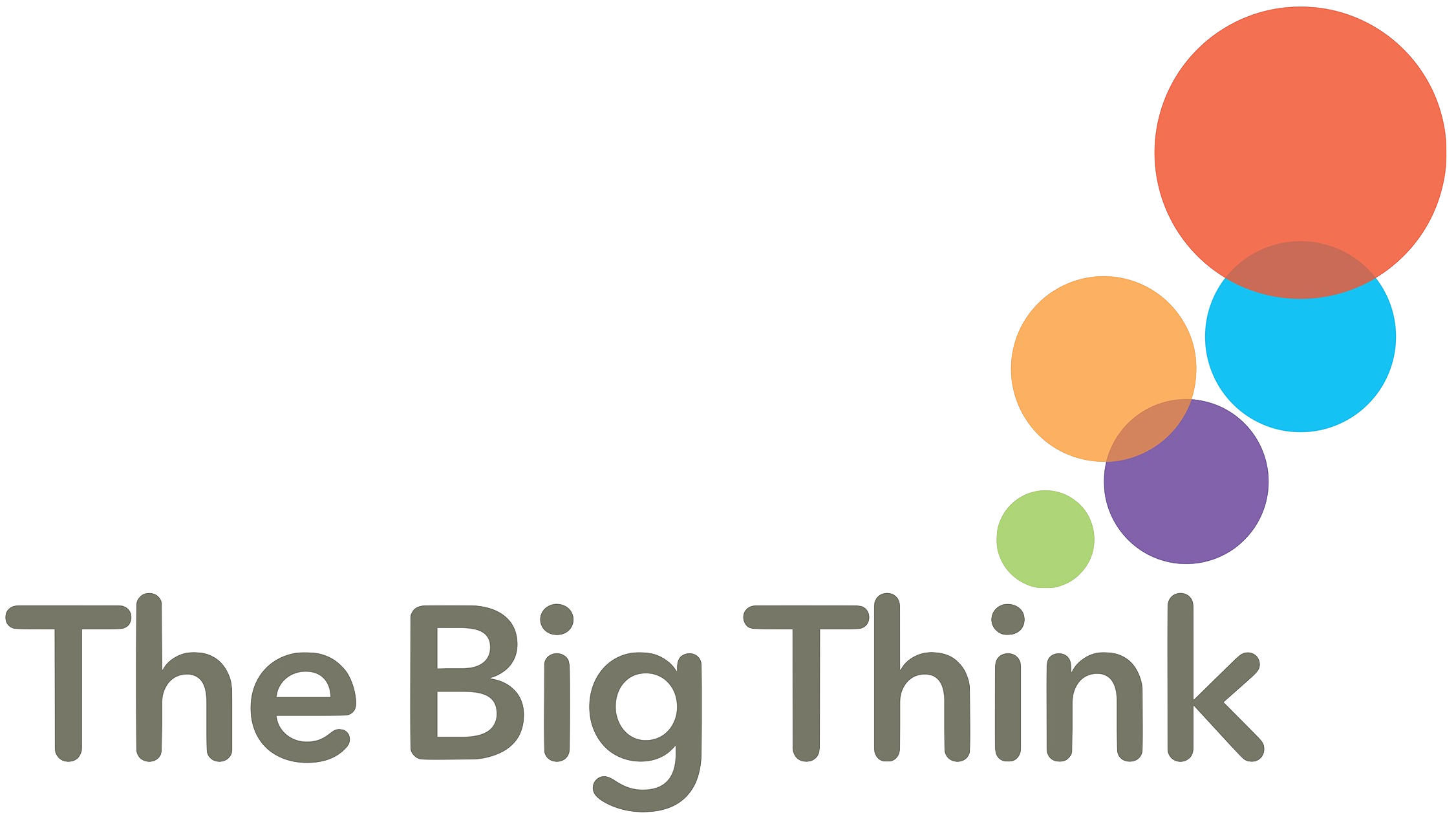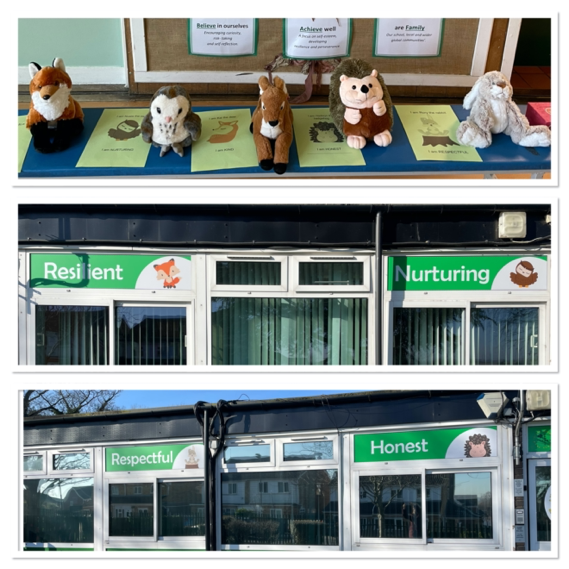Laying the Foundations of DEI (Diversity, Equity and Inclusion)
The Big Think (TBT) is a PSHE programme for ages 5 to 11 which explores human relationships through the lens of 5 BIG human values and develops 5 BIG Social and Emotional Learning (SEL) skills. Our holistic approach uses Silent Sitting meditations for Self-Management, Real World stories for Social Awareness skills, Values Inquiry for Responsible Decision-making skills, The BIG Feelings Compass for Self-Awareness skills and a range of safe dialogue practices to build Relationship Skills.
TBT’s approach has been created to build Belonging in all pupils and staff because we know that a stronger sense of Belonging in pupils leads to higher performance in all areas.
But when working with Primary schools to embed a whole school PSHE approach, we are regularly faced with this pressing question from Early Years practitioners: ‘But what about us?’
We will always collaborate, trial, model and adapt our resources for 4-year-olds and younger. But this just isn’t good enough. If we truly want to create a climate of inclusion, equity and celebrated diversity – where EVERYONE (pupils AND staff) feels a strong sense of Belonging – then we must lay the foundations of DEI with the whole school community and start with more serious intentions, and with evidence-based practice, in those precious Early Years.
To this end, we have recently started collaborating with a range of Early Years settings such as The Mulberry House School in West London and Exhall Cedars Infant, Nursery and Pre-school in Coventry, to start together at the beginning and build Belonging in the Early Years from ages 2 to 7.
We are all human first
Human Values work well in all settings and with all ages simply because we are all human and when bringing together groups of people of any age and in any context, this is a powerfully inclusive way to begin. Introducing The Big Think to any school starts with a Community Values Dialogue – a 90-minute circle discussion with 30 invited participants representing the school community (school leaders, teachers, governors, support staff, caregivers, community and faith leaders and most importantly – pupils, who are often members of the school council). This will naturally look quite different in different schools and can be face-to-face (always our choice!) or virtual.
Community Values Dialogues at Copenhagen Primary, Islington, London
Community Values Dialogues at Eastfield Primary, Middlesex
Community Values Dialogues at Waltham St Lawrence Primary School, Reading
Virtual Community Values Dialogue, St Pauls and All Hallows’ Primary, Tottenham, London
Bringing the school community together during Covid and adding a new school value of Compassion to reflect the need of the community at the time.
Virtual Community Values Dialogue, The Brighton Middle School, Karachi Pakistan
‘Bright Minds, Brighter horizons’ We explored their core school value of Happiness.
Building Belonging in Early Years Settings
The Head Teacher at The Mulberry House School, Victoria Playford, leads with the vision: ‘Born curious, live curious, stay curious’. A prep school in West Hampstead for ages 2 to 7, she wanted to bring to life their PSHE curriculum through their school values and ensure key social and emotional learning skills were being developed throughout the school.
Their Community Values Dialogue involved school council pupils aged from 4 to 7 (including the Minister for Community who was 7!) and offered the chance for very young children to have a voice and part to play in shaping how the school values would influence their PSHE curriculum. Each class has a basket of special animals that bring to life the school values in their everyday learning (e.g. Empathy Elephant, Mindful Meerkat, Resilient Water Bear, Participating Penguin and Meditative Macaque) and these Special Animals became the essence of our work with such young children.
A 6-year-old at The Mulberry House School choosing to connect Empathy Elephant with the BIG 5 Value of Love ‘because Empathy is about learning to love everyone for who they are’
Each very young person was able to choose a special animal to link to a core BIG 5 Value and speak about the life skills they would need to show this value in action. Together we created a safe space of non-judgement where everyone could join in with courage, listen with curiosity and respect all ideas. Pupils didn’t have to agree with their peers, teachers or caregivers, and could move the animals around to try out a range of opinions and see which ideas were a best-fit for themselves and their school.
A 4-year-old at The Mulberry House School choosing to connect the BIG 5 Value of Responsibility with the school’s Resilient Water Bear ‘because it’s my job to ask for help if I need it and this is being resilient’
During the final check-out of the session, in which everyone is able to share a key idea they will take away and act upon, all adults expressed surprise at the depth of understanding about human values that the very young children were able to demonstrate during the session and the collaborative and inclusive ways they were able to make responsible decisions together. We could all see that our youngest humans already know how to live life as natural ambassadors for DEI – we just need to protect safe spaces for them to practise these innate values and skills.
Exhall Cedars Infant, Nursery and Pre-school in Coventry is a vastly different context serving an area of high deprivation. However, it is laying the very same foundations as The Mulberry House School. Headteacher Sharon Hillyard and PSHE Lead Bex Episcopo were keen to build Belonging in their pupils aged from 2 to 7 through self-regulation skills and oracy skills. They figured that if their children had time to understand themselves more deeply and were able to label their feelings and talk about them, they would feel a stronger sense of Belonging and be able to access learning more readily.
Exhall Cedar Infants – using special animals to represent the values (Rex the Resilient Fox, Rory the Respectful Rabbit, Kai the Kind Deer, Nuala the Nurturing Owl, Hadwyn the Honest Hedgehog)
During the Staff Workshop, Early Years teachers shared their experiences of very young pupils who struggled to belong as their communication and language skills were the most underdeveloped they had ever seen – with many arriving unable to make the sounds for animals. For a host of complex reasons, the pandemic, coupled with rising poverty, have had a marked impact on the ability of pupils to feel they belong at school.
In response to this national need, our new Early Years resources will focus on developing Self-Regulation and Oracy skills. Early Years children and staff deserve access to high quality evidence-based resources to support them in the vital work they do in establishing strong foundations on which to build learning and belonging for life. We can’t wait to get started.



















